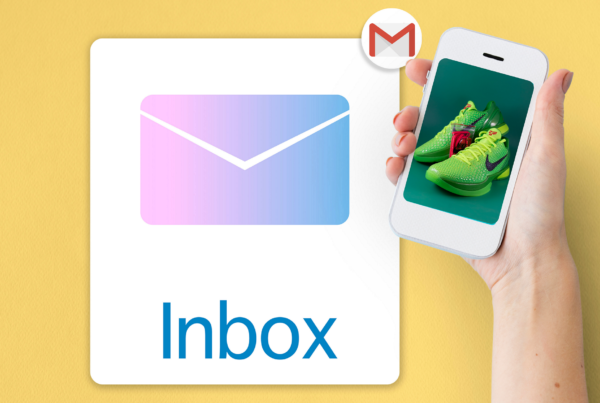
So you’ve finally made a New Year resolution of implementing a Marketing Automation Software for your business. Smart choice. While it’s a first step in the right direction are you still unsure about your key priorities? No worries.
Every year some trends rule the industry. Let us take a look at what we think will be the hottest Marketing Automation trends in 2020.
1. Be Omnipresent with Omnichannel Marketing

Omnichannel Marketing is a term that’s constantly used in Marketing Automation, especially in online businesses. If you thought this was an overhyped term that’s being used as a marketing hoopla, think again!
Omnichannel Marketing uses multiple channels to provide the consumer with a seamless experience. These channels can be online as well as offline. A unified brand image is integrated throughout the customers’ journey irrespective of the channel. This is vital in any online business.
A simple example is when a customer shops for something on your website and adds a couple of products to the cart but is not sure about finalizing his purchase and abandons the cart. Wouldn’t it be great to send him/her a cart abandonment notification on Facebook messenger, as a follow-up? Not everyone shops on their first visit, some people need that extra push to make the purchase. This is precisely what omnichannel marketing does. It eliminates the channel barrier.
Numbers don’t lie. 98% of Americans switch between devices every day. In a 2019 report, it was found that the engagement rate on omnichannel was 18.96% when compared to a meager 5.4% on a single channel.
2. Single Platform = 360-degree View of the Customer

While Omnichannel marketing is all well and good, it is also important to have all the information in one place. When you use multiple tools that help you with Omnichannel marketing, this becomes a key issue. More tools mean more clutter.
A single platform that offers the Omnichannel feature is what you should be looking at. This offers a significant advantage over using multiple platforms since you can have a clear 360-degree view of the consumer in a single platform.
This eliminates the need for multiple platforms, naturally cutting down costs without any disadvantage. It’s a win-win scenario!
3. Deliver Superior Experiences with Personalized Content

With advancements in Artificial Intelligence and Machine Learning, and the user data that is available through Google ads, Social Media, and E-commerce websites it is possible to personalize your marketing to a great extent.
Some great examples of personalization are Netflix and Amazon Prime, where every user has a different set of recommendations based on their content consumption.
In a survey, it was found that up to 80 percent of consumers were very likely to do shop with a brand that carries out personalized marketing campaigns! This means consumers feel more connected to a brand that does personalized marketing campaigns.
4. Let your Customers Indulge in Interactive Content

Static, text-based content is not exactly welcoming. It is time-consuming and can seem monotonous at times. Not everyone has the patience to consume generic text content.
An emerging trend in 2020 is Interactive content which is immersive and requires user engagement.
Want to get to know a consumer? Interact. Take polls on Social Media, ask questions, gamify. Consumers will feel important and interact with your content. A great example is Instagram polls and questions.
Have a really good product? Consider using a 360-degree video so that you can showcase the product so that consumers can have a better look at it.
88% of Marketers believe that interactive content helps them differentiate themselves from their competitors.
5. Social Media Automation is a Lifesaver

Spending too much time on Social Media is bad, we all know that. This applies to businesses as well. There is no need for you to put in too many hours into Social Media when many of the tasks can be automated.
While E-mail Marketing Automation has been done to the core, there are some great advantages to automating your Social Media Marketing too.
Be it scheduling a post ahead of time or having a bot replying to messages, automation makes your life a little easier. You can even sync your posts and publish them at the same time with the help of automation.
6. Chatbots For The Win

Chatbots have taken the role of the first line of customer support for any online business. And according to reports, by 2020 chatbots will power up to 85% of customer service.
This doesn’t come as a surprise considering chatbots are available 24 hours, do not get impatient, and respond honestly. This also means chatbots take up repetitive tasks and lets you focus on tasks that are of higher priority.
You can book a ride with the Lyfts’ chatbot, thus eliminating the need for human intervention. A customer browsed something on your website a couple of days back? Send him a reminder using a chatbot via a Social Media message.
Over 65% of consumers have already interacted with a chatbot and 35% of consumers have purchased something with the help of a chatbot.
7. Data Privacy in Marketing

While this is not exactly a Marketing Automation feature, this is something that every customer-centric business should prioritize.
With the number of data leaks that we have seen in the past years, users are wary and concerned about their online data. A customer-centric brand should heavily focus on the data privacy of the consumers, but this also sets up a couple of roadblocks.
Data collection helps marketers tailor recommend and display products to consumers, but it also means the data available is at stake and might be vulnerable. The state of California has passed CCPA (California Consumer Privacy Act) in 2018. According to this act, a consumer would know when his data is being sold online, what personal data is collected and the consumer even has the right to reject data collection. This act faced opposition from the likes of Facebook, which heavily relies on user data for marketing and personalization.
The best practices for brands and businesses would be to focus on data privacy and be transparent with your consumers regarding what data is being collected. Handling consumer data safely is the responsibility of the business.
61% of U.S consumers preferred getting relevant offers rather than keeping their online behavior private from businesses.
What does the future hold for Marketing Automation?
2020 will be an interesting year for the Marketing Automation industry. From automating your Social Media tasks and personalizing your Email Marketing content, to using Omnichannel marketing, delivering interactive content, and using chatbots, these Marketing Automation trends can benefit your business.
For an online business, these marketing automation trends can bring significant value and growth to your business. They will also help you maximize the efficiency of your marketing campaign and drive growth to your business and also help you differentiate yourself from your competitors.
Sources-Google, Epsilon, Accenture, Leftronic



